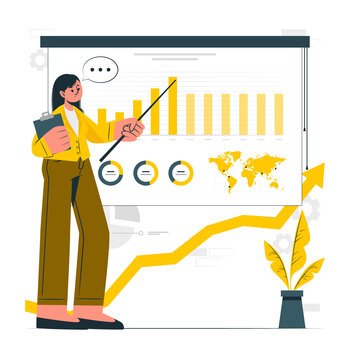Understanding Technical SEO
Technical SEO encompasses essential elements crucial for fine-tuning a website to meet search engine standards
Drive higher ROI from your campaigns!
Benefits of Technical SEO
By leveraging the benefits of Technical SEO, websites can fortify their online presence, enhance user satisfaction, and secure higher visibility and rankings in search engine results, contributing significantly to their overall success in the digital sphere.
1
Improved Indexation and Crawling
A well-executed Technical SEO strategy ensures enhanced crawlability, allowing search engines to index all relevant pages efficiently. By rectifying crawl errors, optimizing sitemaps, and employing proper redirects, a website maximizes its visibility in search results. This comprehensive indexing of pages facilitates a broader and more accurate representation of the website's content, increasing its chances of ranking for relevant search queries.
2
Enhanced User Experience
Technical SEO directly impacts user experience by optimizing site speed and ensuring mobile responsiveness. Websites with faster loading times and mobile-friendly designs provide a smoother and more enjoyable experience for visitors. Improved user experience reduces bounce rates and enhances engagement metrics, such as time spent on site and page views, signaling to search engines the website's relevance and quality.
3
Higher Search Engine Rankings
Websites that prioritize impeccable technical optimization often secure higher positions in search engine results pages (SERPs). Factors like faster loading speeds, mobile responsiveness, secure connections (HTTPS), and efficient site structures contribute significantly to search engines favorably ranking these sites. Higher rankings attract more organic traffic, expanding the website's reach and potential customer base.
4
Facilitates Richer Search Results
Implementing structured data markup aids in presenting rich snippets in search results, potentially enhancing a website's visibility and attracting more clicks. These rich snippets, such as star ratings, event details, or product information, make search listings more appealing and informative, resulting in increased user engagement.
5
Long-Term Sustainability
A robust Technical SEO foundation establishes a website's longevity and sustainability. Resolving technical issues, improving site performance, and adhering to search engine guidelines create a stable framework that supports consistent visibility and rankings over time. This long-term approach ensures that the website remains competitive amidst evolving search engine algorithms.
6
Mitigates Penalties and Issues
Ensuring compliance with search engine guidelines and rectifying technical issues helps in avoiding penalties and addressing potential problems before they escalate. Websites that adhere to best practices in Technical SEO are less prone to penalties and are better equipped to maintain a positive online reputation.
7
Competitive Edge
Websites with superior technical optimization gain a competitive edge in the digital landscape. By offering a seamless user experience and aligning with search engine criteria, these sites stand out among competitors, attracting more traffic and establishing themselves as industry leaders.
Technical SEO
By meticulously executing the steps listed below and continuously refining and adapting technical strategies, SEO agencies can help you establish a solid foundation for optimal performance, ensuring better visibility, user experience, and rankings in search engine results.

Website Audit and Analysis
The process at our technical SEO company kicks off with a thorough website audit, examining various technical aspects. This audit identifies potential issues that might hinder search engine crawling and indexing. It involves scrutinizing factors such as broken links, duplicate content, crawl errors, HTTPS implementation, XML sitemaps, site architecture, mobile-friendliness, site speed, and more. Tools like Google Search Console, Screaming Frog, or SEMrush assist in this analysis, providing valuable insights into existing technical issues.

On-Page Optimization
On-page optimization involves fine-tuning individual web pages to align with search engine best practices. This includes optimizing title tags, meta descriptions, header tags (H1, H2, etc.), and ensuring proper usage of structured data markup (schema.org). By optimizing these on-page elements, websites can enhance their visibility in search results, making it easier for search engines to understand the relevance and context of the content.

Schema Markup Implementation
Implementing structured data markup, such as schema.org markup, aids search engines in better comprehending and interpreting a website's content. This markup provides explicit context to the information on a webpage, enabling search engines to present rich snippets in search results. Rich snippets can include star ratings, event details, product information, and other enhanced elements, making search listings more informative and appealing to users.

Site Speed Optimization
Optimizing site speed is critical for user experience and search engine rankings. This involves techniques such as optimizing images, leveraging browser caching, minimizing CSS and JavaScript files, utilizing content delivery networks (CDNs), and reducing server response times. A faster-loading website enhances user satisfaction, reduces bounce rates, and positively impacts search engine rankings.

Mobile-Friendly Design and Mobile-First Indexing
Ensuring a mobile-friendly design is crucial in today's mobile-centric landscape. Websites need to be responsive and optimized for various devices to provide a seamless user experience. With Google's mobile-first indexing, prioritizing mobile usability has become essential for search engine visibility and rankings.

Fixing Technical Errors and Issues
Based on the audit findings, resolving identified technical errors becomes a priority. This includes rectifying broken links, fixing crawl errors, addressing duplicate content issues, implementing proper redirects (301, 302), resolving canonicalization issues, and ensuring the website complies with HTTPS encryption standards.

Monitoring and Ongoing Optimization
Continuous monitoring and ongoing optimization are integral to Technical SEO. Regularly tracking performance metrics, monitoring search engine algorithm updates, and adapting strategies accordingly help in maintaining and improving a website's technical health and search engine visibility over time.
What Our Customers Are Saying
Our Clients send us a bunch of smiles with our services and we love them.
Code & Peddle process was very deliberate in their development of a strategy – which we liked. They have a system in place that makes it easy to report and track where the progress of project hours go.

The professionalism and personalized service that we got from Success Agency is unlike any other company we worked with and they made us feel so comfortable. Incredibly trustworthy and high value!!! Thank you!

Code & Peddle understanding of technical SEO and content marketing clearly differentiates them from the myriad of other SEO/SEM agencies. Their data driven approach to Social just downright works

How about scheduling a call with us to learn more?
Ensure Precision: Secure Your Website SEO Audit Now!
Here’s what you can expect:
- On-Page SEO Analysis
- Technical SEO Assessment
- Off-Page SEO Examination
- User Experience and Mobile Optimization

FAQs
Site speed impacts user experience and search engine rankings. Faster-loading pages are favored by both users and search engines. Websites with swift loading times tend to have lower bounce rates and higher engagement, contributing positively to SEO.
Errors like broken links, server errors, or blocked pages hinder search engine bots from properly indexing a website, affecting its visibility. Addressing these issues promptly ensures a smoother crawling process, enhancing a site's chances of ranking well.
Schema markup provides structured data to search engines, improving their understanding of website content, potentially resulting in enhanced rich snippets in search results. Rich snippets, such as ratings, reviews, and product details, make listings more informative and appealing to users, increasing click-through rates.
Yes, HTTPS is crucial for website security and is considered a ranking signal by search engines, positively impacting SEO. Secure websites with HTTPS encryption instill trust in users and are favored by search engines, contributing to better rankings.
XML sitemaps aid search engines in understanding a website's structure and content, facilitating better crawling and indexing. They provide a roadmap for search engine bots, ensuring comprehensive coverage of a website's pages in search results.
Yes, mobile-friendliness is a significant ranking factor, especially after Google's mobile-first indexing update. Websites optimized for mobile devices ensure a seamless user experience across various screen sizes, influencing search engine rankings positively.
Canonical tags help in resolving duplicate content issues, indicating the preferred version of a webpage for search engines. By consolidating ranking signals to the canonical URL, websites avoid potential penalties for duplicate content, ensuring better SEO performance.
Issues like improper redirects, blocked resources, or slow-loading pages can hinder site crawlability, impacting SEO. Resolving these issues, ensuring proper redirects, unblocking essential resources, and optimizing loading times are crucial for improved crawlability.
Yes, internal linking aids in establishing site structure, distributing link equity, and facilitating better navigation and crawlability. Proper internal linking enhances user experience and ensures search engines can easily discover and index important pages.
Structured data markup helps search engines understand and display content more effectively, potentially leading to improved visibility in search results. Websites with well-implemented structured data markup have increased chances of appearing with rich snippets, attracting more clicks and traffic.


















